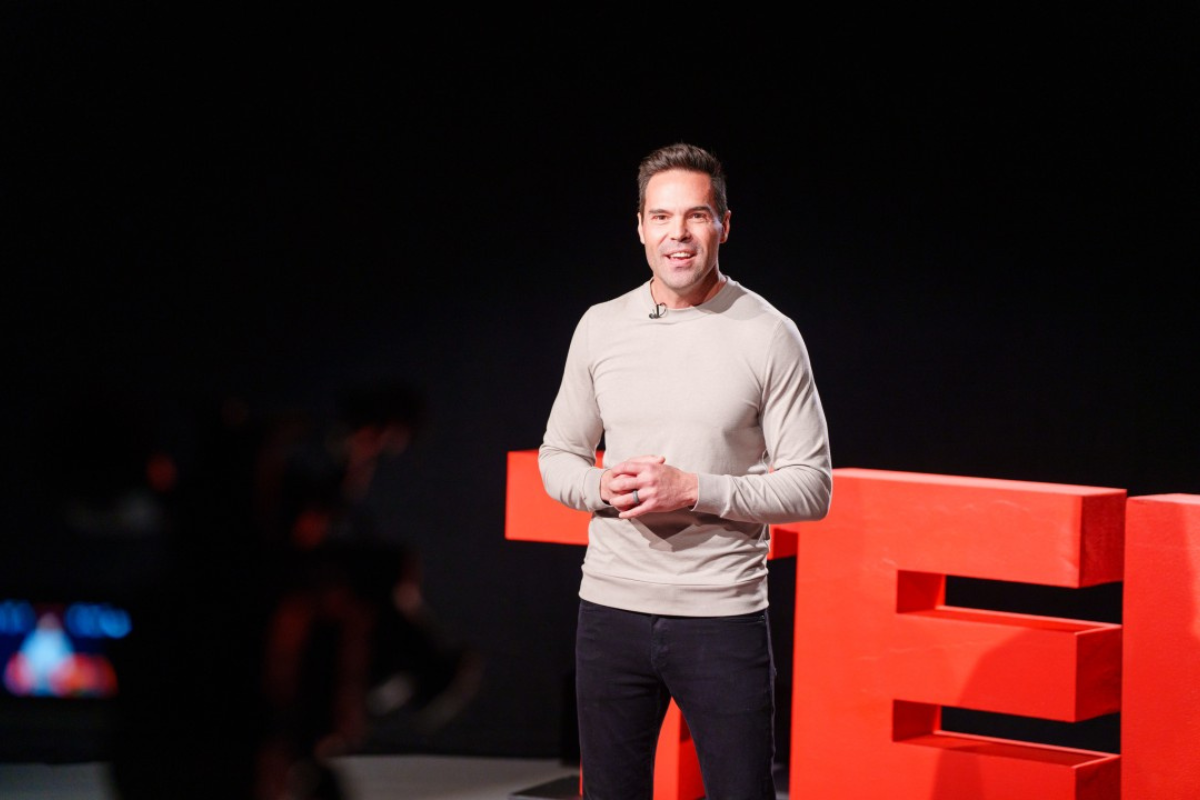
Navigating Self-Doubt in Entertainment: Confidence-Building Techniques for Creatives
![]() Aaron Kendall Wilson
Aaron Kendall Wilson
![]() September 12, 2024
September 12, 2024
The entertainment industry is filled with uncertainty, fierce competition, and constant evaluation. For creatives such as actors, musicians, and models, self-doubt can feel like an inevitable part of the journey. Whether it's second-guessing a performance, feeling inferior to peers, or fearing rejection, these emotions often hinder the pursuit of artistic success. Confidence-building is essential for navigating this challenging world, yet many find it difficult to overcome negative thoughts and develop a resilient mindset. Fortunately, by applying specific techniques, creatives can build lasting confidence and reclaim control of their careers. Self-doubt is a powerful force, particularly in fields where success is subjective, and feedback is often unpredictable. Artists frequently face situations where they must put their vulnerabilities on display, opening themselves up to criticism or even public rejection. This constant scrutiny can amplify insecurities, making it difficult to trust in one's abilities. For a musician who has spent years honing their craft, or an actor working tirelessly to land a role, the fear of never being "good enough" becomes a nagging companion. It is not uncommon for even the most seasoned professionals to question their worth or whether they belong in the industry. Moreover, the entertainment world demands not only skill but also marketability. Artists may feel pressure to conform to trends or please others, rather than staying true to their artistic voice. This tension between authenticity and market demands further fuels self-doubt. It's not just about performing well; it's about fitting into an industry that often feels elusive and cutthroat. The constant drive for validation - whether from casting directors, producers, or the audience - can cause creatives to spiral into negative thinking. This emotional burden can make the journey seem overwhelming unless addressed with deliberate confidence-building strategies. Many artists are unaware of how self-doubt manifests in their daily lives. It often creeps in through subtle, self-sabotaging behaviours. One common sign is procrastination, which results from the fear of failing before even starting. Creatives may avoid auditioning for roles, submitting work, or performing, delaying the process under the guise of needing more preparation. Another manifestation is perfectionism, where nothing ever seems "good enough." This results in endless revisions, but no final product to present. Fear of rejection is another prevalent issue that prevents artists from seeking new opportunities. Actors may hesitate to attend auditions or musicians might delay releasing their work, consumed by the thought that others will not appreciate their efforts. Over time, these avoidance tactics feed into a cycle of doubt, further diminishing confidence. Alongside this, many creatives constantly compare themselves to their peers. Seeing others succeed where they struggle can lead to feelings of inferiority and hopelessness. It's essential to recognize these signs early on, as they often hold individuals back from progressing in their careers. Understanding the root causes of these behaviours is crucial. Previous experiences, such as past failures or harsh criticisms, may deeply affect an artist's self-esteem. Internalized beliefs about talent and worthiness may develop over the years, becoming difficult to shake. Identifying these thought patterns is the first step toward addressing them, as it allows creatives to take charge of their emotional responses and actively work on building a stronger sense of self-belief. One of the most powerful techniques for overcoming self-doubt is reframing rejection as a learning experience. Rejection is inevitable in entertainment, yet many creatives view it as a reflection of their worth rather than an opportunity for growth. By shifting the mindset to see rejection as part of the process, artists can remove the emotional weight attached to these setbacks. Rejection doesn't signify a lack of talent but rather a chance to improve and refine one's craft. Actors, musicians, and models who learn to embrace this perspective find that their confidence grows as they become more resilient. Another technique that helps is setting smaller, achievable goals. The entertainment industry often promotes lofty dreams of fame and success, which can seem overwhelming when progress feels slow. Breaking these aspirations down into smaller, manageable tasks not only makes them more attainable but also provides frequent opportunities for success. Completing even a small task, such as mastering a scene or writing a song, brings a sense of accomplishment that fuels self-confidence. As artists continue to achieve these mini-goals, their belief in their ability to succeed in larger projects strengthens. Curating a personal success portfolio is another effective tool for creatives. This portfolio is a collection of past achievements, whether it's a standout performance, positive feedback from a director, or even a piece of work they are particularly proud of. Reviewing these successes helps to counterbalance the negative thoughts that arise from self-doubt. It reminds the artist of their capabilities and reinforces that they are worthy of their place in the industry. When self-doubt creeps in, having tangible proof of previous success can help shift focus back to one's strengths. A fundamental aspect of overcoming self-doubt involves shifting toward a growth mindset. This mindset is rooted in the belief that abilities and talents can be developed through effort, practice, and persistence. It contrasts with a fixed mindset, where people believe their skills are static and cannot improve. By adopting a growth mindset, creatives can view challenges as opportunities to learn rather than threats to their talent. This shift enables artists to embrace imperfections and failures as natural steps in their development, rather than seeing them as indications of inadequacy. Visualization techniques are another powerful way to build confidence. By mentally rehearsing success, such as acing an audition or delivering a flawless performance, artists can reduce anxiety and build their mental readiness. Visualizing positive outcomes before an event helps the brain become familiar with success, making it easier to approach real-life situations with a sense of preparedness and calm. This technique is used by many successful performers, athletes, and public speakers to overcome nerves and build self-assurance. Additionally, adopting affirmations and practising positive self-talk can dramatically alter the internal dialogue creatives have with themselves. Often, self-doubt is fueled by a negative loop of thoughts, reinforcing feelings of inadequacy. Artists who actively replace these negative thoughts with positive affirmations can gradually rewire their thinking. Repeating statements such as "I am capable," or "I have worked hard for this moment," can counterbalance the weight of doubt, leading to a more confident and optimistic outlook. For many creatives, building confidence requires the input and support of others. This is where working with a confidence-building coach can make a significant difference. Coaches help artists identify their limiting beliefs and create strategies to overcome them. Through regular sessions, they offer guidance, accountability, and practical tools for self-improvement. The support of a coach provides a structured way for creatives to address their self-doubt and develop confidence over time, without feeling overwhelmed. Mentorship is equally valuable in the entertainment industry. Experienced mentors, whether in acting, music, or modeling, provide not only advice but also perspective. They have often faced similar struggles and can share their strategies for navigating the same challenges. Mentorship fosters a sense of community and belonging, helping to dissolve feelings of isolation. Knowing that others have successfully overcome the same doubts can inspire emerging creatives to keep pushing forward, even when the path seems daunting. Another vital aspect of building confidence is seeking out supportive creative communities. Joining groups, workshops, or online networks with like-minded individuals fosters an environment where artists can share their experiences, receive constructive feedback, and grow together. These communities offer the encouragement needed to stay motivated, even in the face of setbacks. Sharing both successes and struggles in a group setting helps to normalize the emotional ups and downs that come with pursuing a creative career, reducing the burden of self-doubt. The creative process can be physically and emotionally demanding, and neglecting self-care often worsens self-doubt. Maintaining a healthy balance between work and personal well-being is crucial for building resilience. Physical health plays a significant role in emotional stability, and creatives who prioritize regular exercise, balanced nutrition, and adequate rest find themselves better equipped to handle stress and rejection. Incorporating mindfulness practices into daily routines can also enhance confidence. Techniques such as meditation, breathing exercises, or journaling help creatives remain grounded and centred, reducing anxiety and fear. Mindfulness encourages a present-focused mindset, allowing artists to appreciate the process of creating rather than becoming overly fixated on outcomes. This shift in focus can significantly reduce the impact of self-doubt, helping individuals to perform at their best without fear of judgment. Finally, scheduling regular breaks and downtime is essential. The relentless pursuit of perfection and success often leads to burnout, further diminishing confidence. By creating space to rest and recharge, creatives can return to their work with renewed energy and a fresh perspective, ultimately increasing their confidence in both their abilities and their work. Confidence-building is a gradual process, and tracking progress is key to maintaining momentum. Artists should regularly reflect on their growth, noting the ways they have handled challenges, embraced new opportunities, and improved their skills. Keeping a journal or creating a checklist of milestones can help creatives see how far they've come. This not only strengthens confidence but also offers motivation to keep pushing through future hurdles. Celebrating wins - no matter how small - reinforces a sense of achievement and self-worth. Whether it's completing a project, landing an audition, or simply taking a step outside their comfort zone, recognizing these victories is essential for long-term confidence. Celebrations don't need to be grand gestures; simply acknowledging progress creates a positive feedback loop that fuels further success. Building confidence in the entertainment industry requires persistence, self-awareness, and resilience, but by applying these techniques, artists can move beyond self-doubt and fully embrace their creative potential.Understanding Self-Doubt in the Entertainment Industry
Recognizing the Signs of Self-Doubt
Confidence-Building Techniques for Overcoming Self-Doubt
Building Resilience Through Mindset Shifts
Seeking Guidance and Mentorship
Creating a Self-Care Routine to Support Confidence
Measuring Progress and Celebrating Wins

Recent Articles
How Stage Fright Can Propel Your Singing Career to the Next Level Without Delay
Before I discovered the secret...
![]() Oct 01, 2024
Oct 01, 2024
How Having No Experience as an Actor Can Be Used to Your Advantage
Before I discovered the hidden...
![]() Oct 01, 2024
Oct 01, 2024
Shy to Strong: The Evolution of a Confident
Before I understood the power ...
![]() Oct 01, 2024
Oct 01, 2024
The Hidden Power of Shyness: Crafting a Unique Presence in the Modeling World
In a world often dominated by ...
![]() Oct 08, 2024
Oct 08, 2024
Reimagining Inexperience: Transforming Your Acting Journey into an Asset
Stepping into the world of act...
![]() Oct 07, 2024
Oct 07, 2024
Why Embracing Stage Fright Can Skyrocket Your Music Career
Before I discovered how to lev...
![]() Oct 06, 2024
Oct 06, 2024
Transforming Stage Fright into a Powerful Tool for Your Singing Success
Before I uncovered the true po...
![]() Oct 05, 2024
Oct 05, 2024
The Confident Introvert: How Shyness Can Shape Your Modeling Identity
Shyness is often perceived as ...
![]() Oct 04, 2024
Oct 04, 2024
Embracing the Beginner's Mindset: Why Lack of Experience Can Spark Your Acting Success
Before I truly grasped the tra...
![]() Oct 03, 2024
Oct 03, 2024
From Shyness to Stardom: Turning Insecurity into Confidence in the Modeling Industry
Before I grasped how to levera...
![]() Oct 09, 2024
Oct 09, 2024
The Journey from Stage Fright to Stage Power: Lessons from My Music Career
Before I discovered the secret...
![]() Oct 10, 2024
Oct 10, 2024
